46 Inspiring Quotes By Aldo Leopold That Will Change Your Perception Towards Life
Aldo Leopold was an America ecologist and wildlife conserver, whose works later added much more to his reputation. Besides being an environmentalist he was also a scientist, an author and a philosopher. With the dawn of the 20th century, America had grown to an extent where civilization had encroached natural resources, destroying its flora and fauna. Aldo Leopold forecast the grave future and ignited a major wildlife management and land effect revolution. Leopold advocated wildlife and soil, calling for its protection, which caused major reactions among farmers, timber agents and hunters. Being an able orator and writer, he was able to win their hearts. His thoughts and quotations remind us of his contributions and motivate us to stand strongly for a cause. Leopold was the first to plant forests, after they were destroyed for timber that was used in the War. His books, papers, quotations and sayings on various wildlife reforms have earned him an irreplaceable spot in the development of American flora and fauna. Leopold dedicated his life for a cause, here’s what his quotes say!
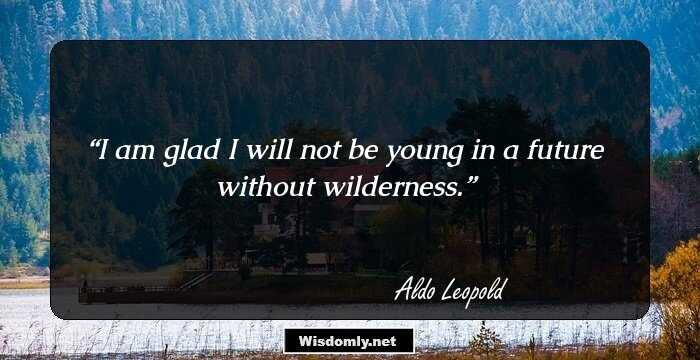
I am glad I will not be young in a future without wilderness.
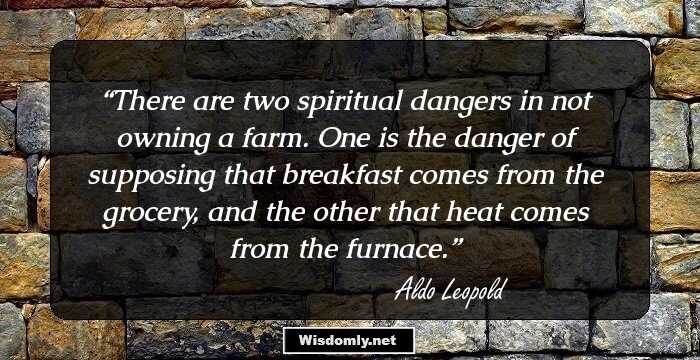
There are two spiritual dangers in not owning a farm. One is the danger of supposing that breakfast comes from the grocery, and the other that heat comes from the furnace.
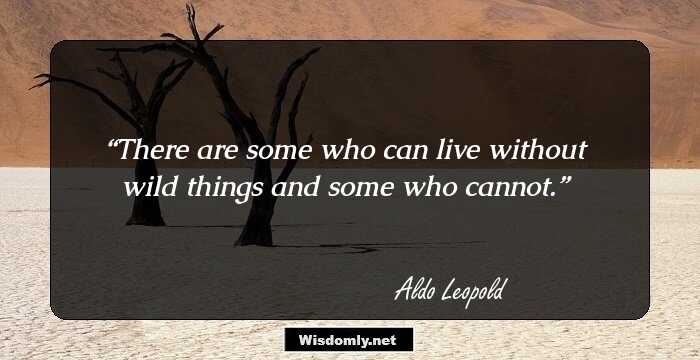
There are some who can live without wild things and some who cannot.
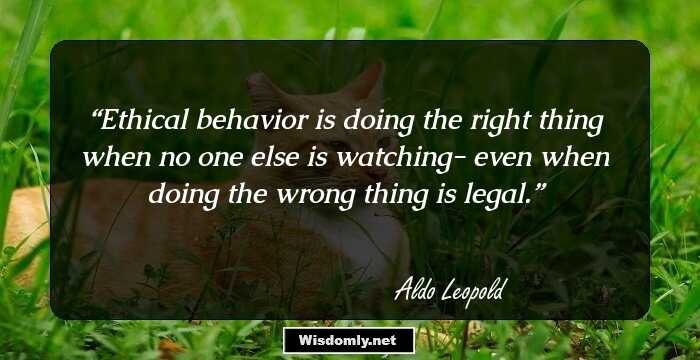
Ethical behavior is doing the right thing when no one else is watching- even when doing the wrong thing is legal.
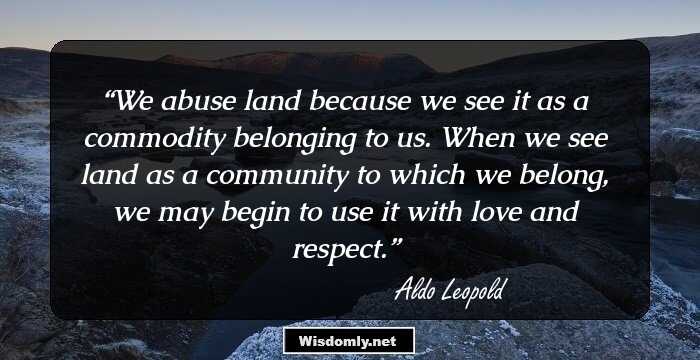
We abuse land because we see it as a commodity belonging to us. When we see land as a community to which we belong, we may begin to use it with love and respect.
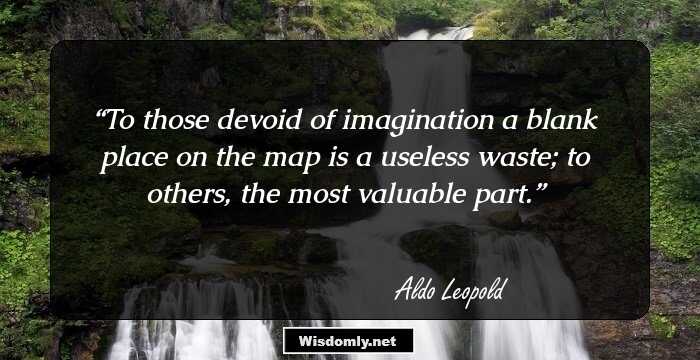
To those devoid of imagination a blank place on the map is a useless waste; to others, the most valuable part.
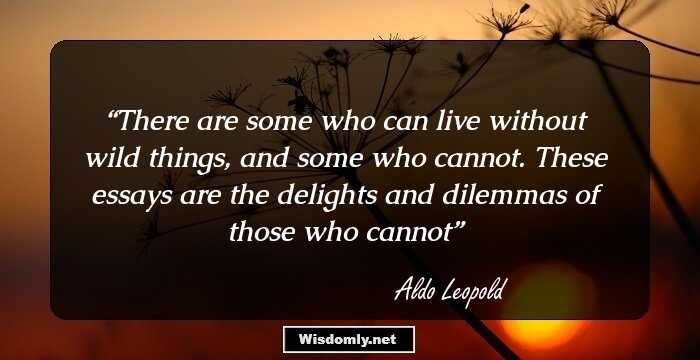
There are some who can live without wild things, and some who cannot. These essays are the delights and dilemmas of those who cannot
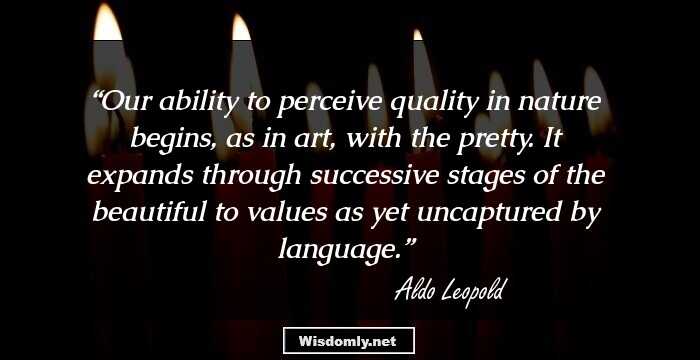
Our ability to perceive quality in nature begins, as in art, with the pretty. It expands through successive stages of the beautiful to values as yet uncaptured by language.
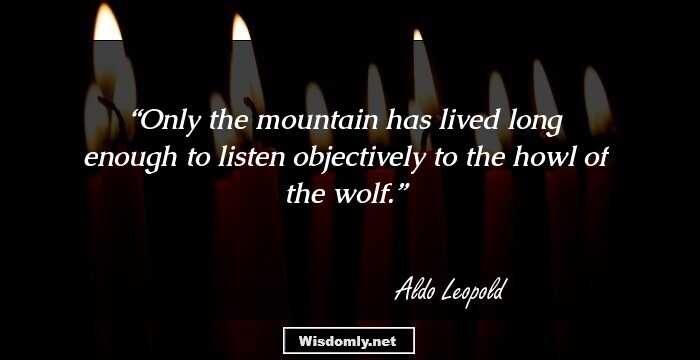
Only the mountain has lived long enough to listen objectively to the howl of the wolf.
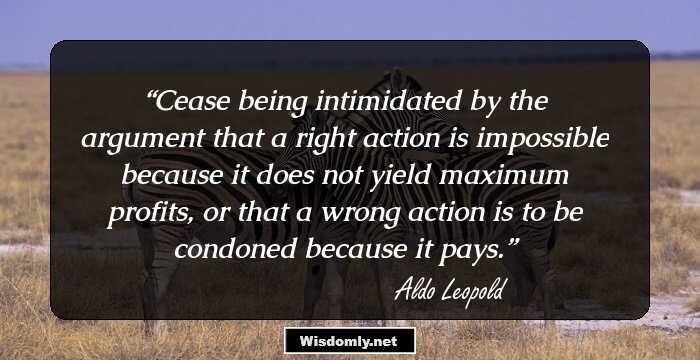
Cease being intimidated by the argument that a right action is impossible because it does not yield maximum profits, or that a wrong action is to be condoned because it pays.
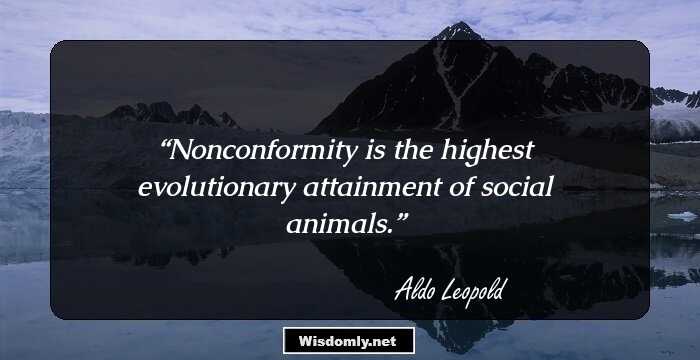
Nonconformity is the highest evolutionary attainment of social animals.
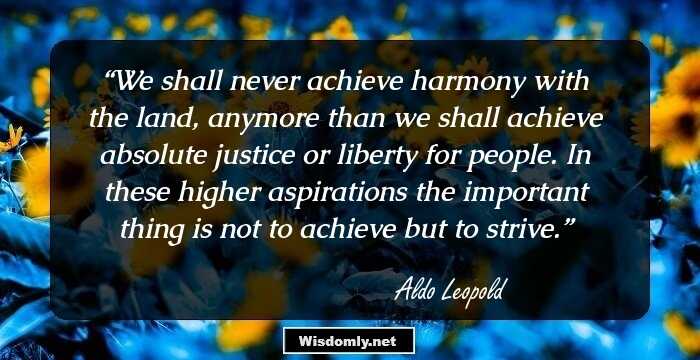
We shall never achieve harmony with the land, anymore than we shall achieve absolute justice or liberty for people. In these higher aspirations the important thing is not to achieve but to strive.
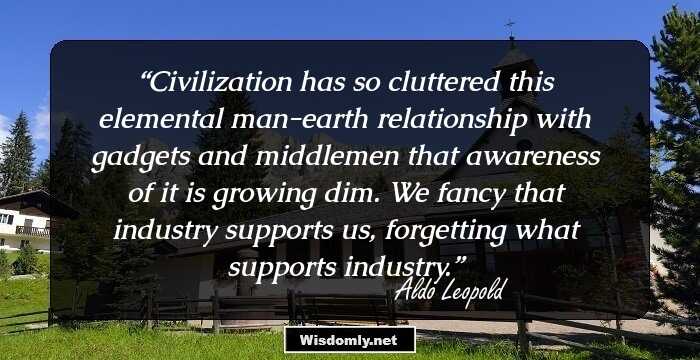
Civilization has so cluttered this elemental man-earth relationship with gadgets and middlemen that awareness of it is growing dim. We fancy that industry supports us, forgetting what supports industry.
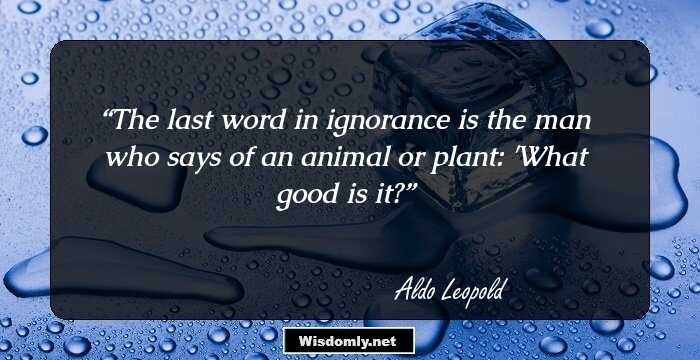
The last word in ignorance is the man who says of an animal or plant: 'What good is it?
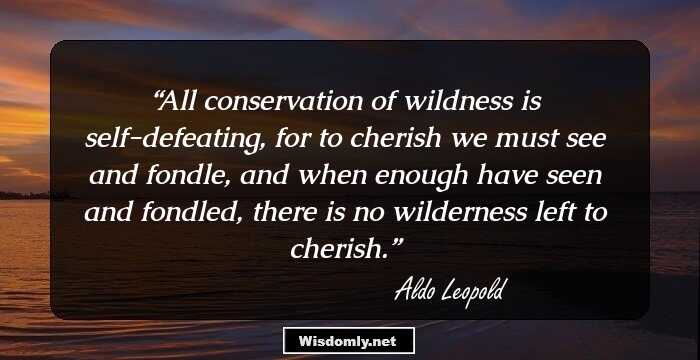
All conservation of wildness is self-defeating, for to cherish we must see and fondle, and when enough have seen and fondled, there is no wilderness left to cherish.
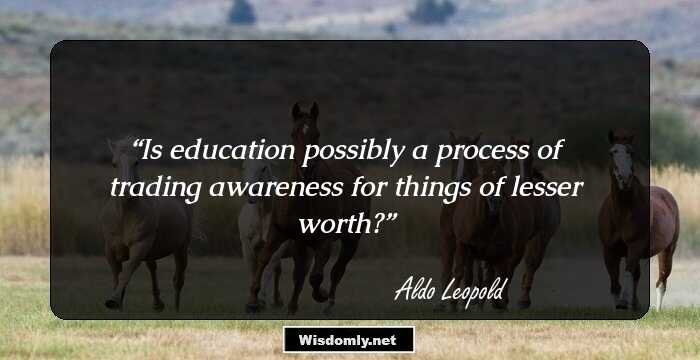
Is education possibly a process of trading awareness for things of lesser worth?
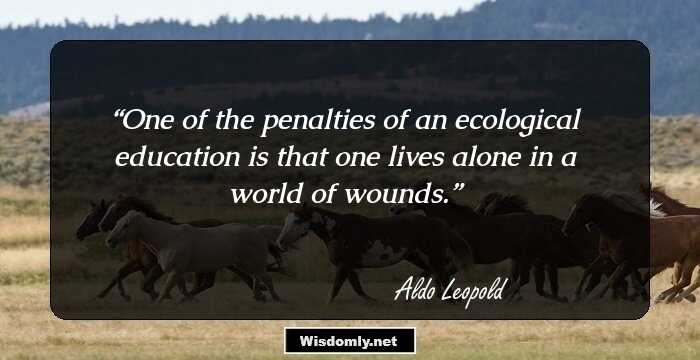
One of the penalties of an ecological education is that one lives alone in a world of wounds.
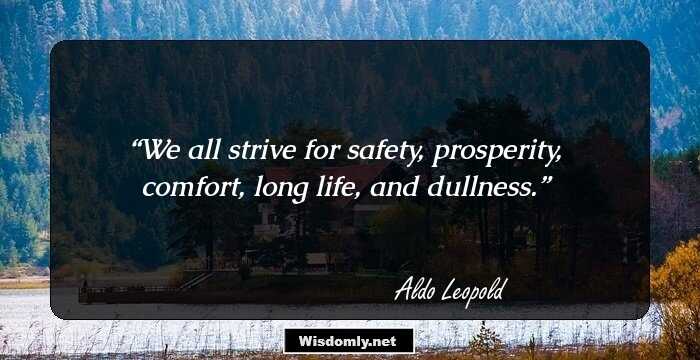
We all strive for safety, prosperity, comfort, long life, and dullness.
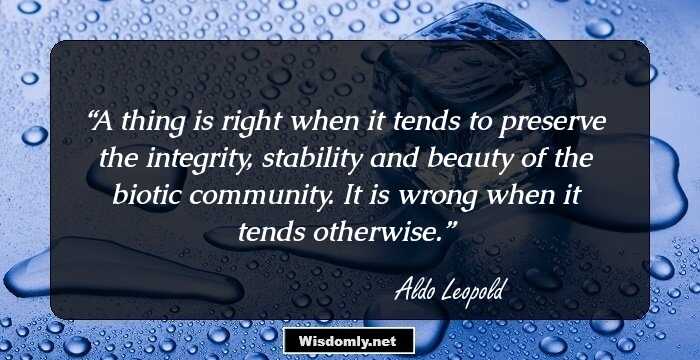
A thing is right when it tends to preserve the integrity, stability and beauty of the biotic community. It is wrong when it tends otherwise.
![A conservationist is one who is humbly aware that with each stroke [of the axe] he is writing his signature on the face of the land.](https://www.wisdomly.net/images/quotes/aldo-leopold-1780.jpg)
A conservationist is one who is humbly aware that with each stroke [of the axe] he is writing his signature on the face of the land.
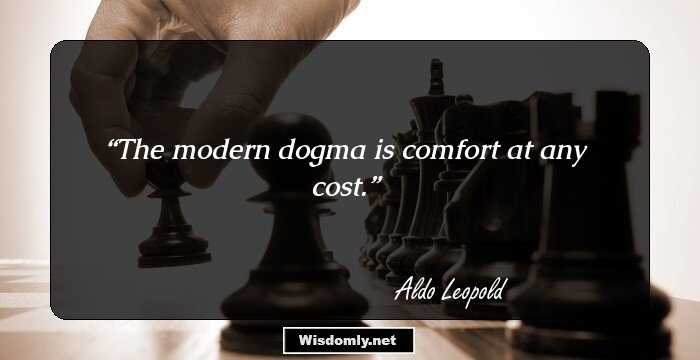
The modern dogma is comfort at any cost.
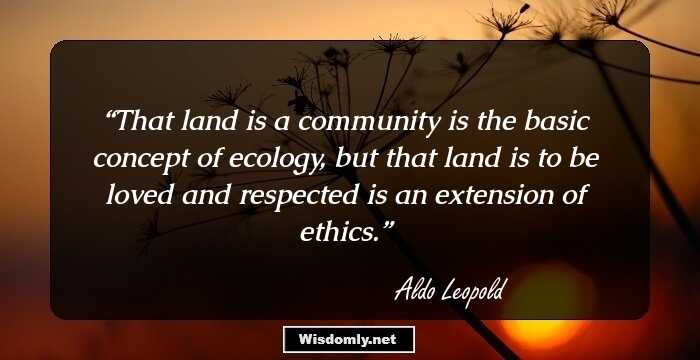
That land is a community is the basic concept of ecology, but that land is to be loved and respected is an extension of ethics.
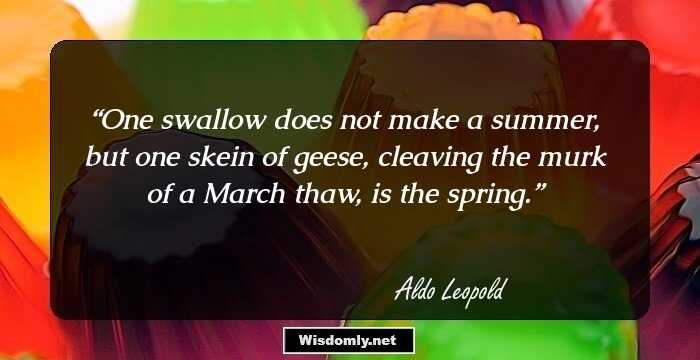
One swallow does not make a summer, but one skein of geese, cleaving the murk of a March thaw, is the spring.
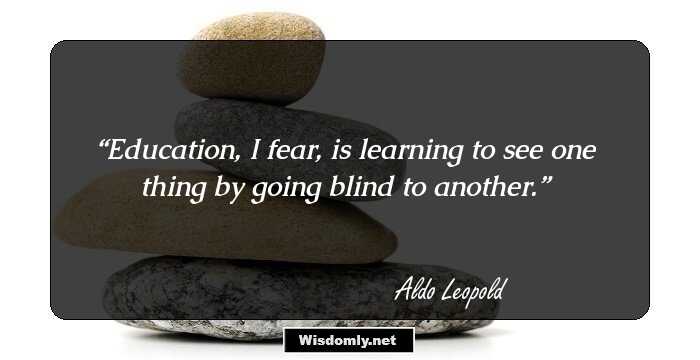
Education, I fear, is learning to see one thing by going blind to another.
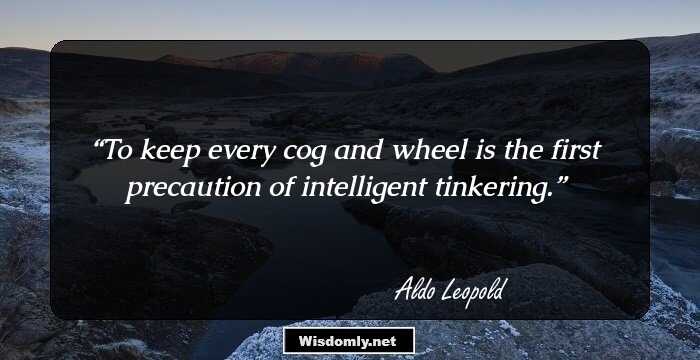
To keep every cog and wheel is the first precaution of intelligent tinkering.
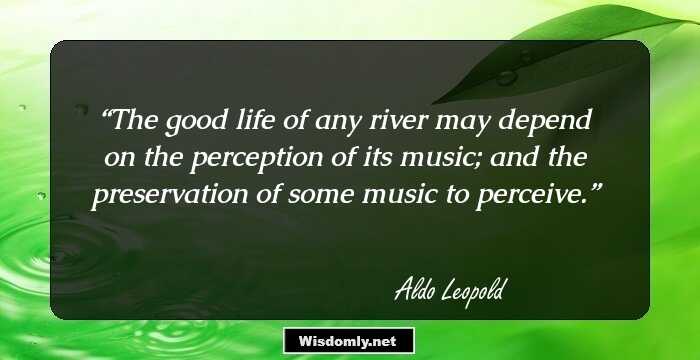
The good life of any river may depend on the perception of its music; and the preservation of some music to perceive.
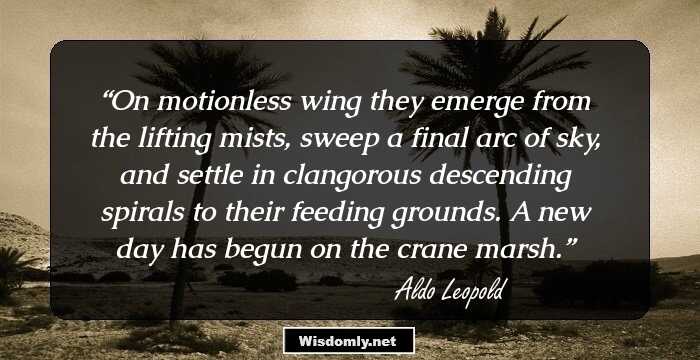
On motionless wing they emerge from the lifting mists, sweep a final arc of sky, and settle in clangorous descending spirals to their feeding grounds. A new day has begun on the crane marsh.
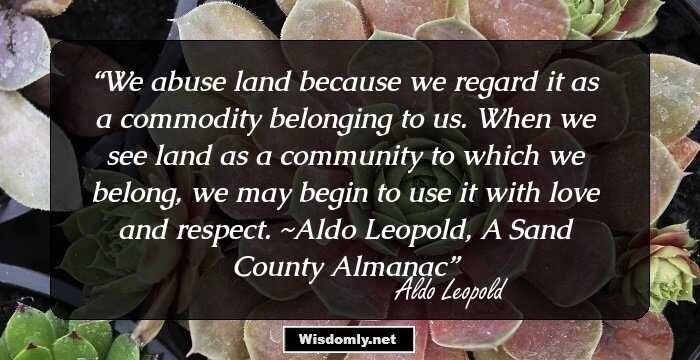
We abuse land because we regard it as a commodity belonging to us. When we see land as a community to which we belong, we may begin to use it with love and respect. ~Aldo Leopold, A Sand County Almanac
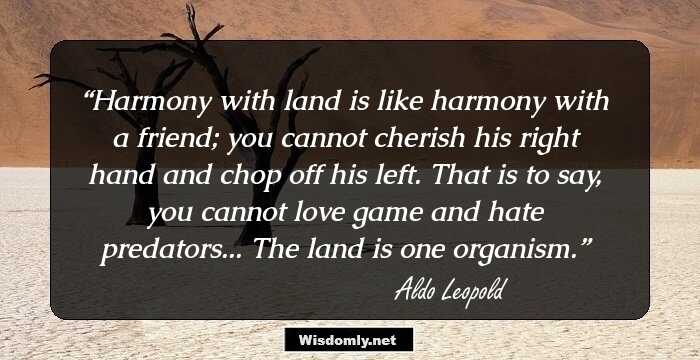
Harmony with land is like harmony with a friend; you cannot cherish his right hand and chop off his left. That is to say, you cannot love game and hate predators... The land is one organism.
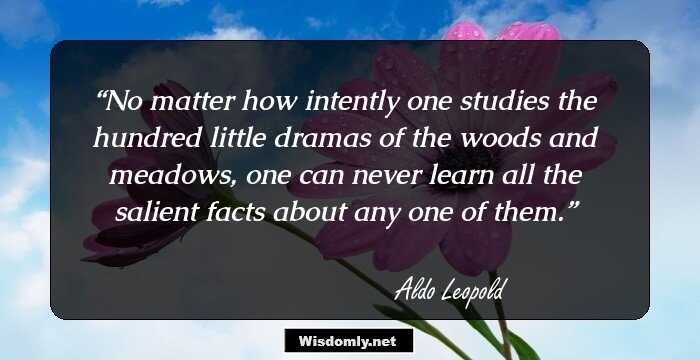
No matter how intently one studies the hundred little dramas of the woods and meadows, one can never learn all the salient facts about any one of them.










